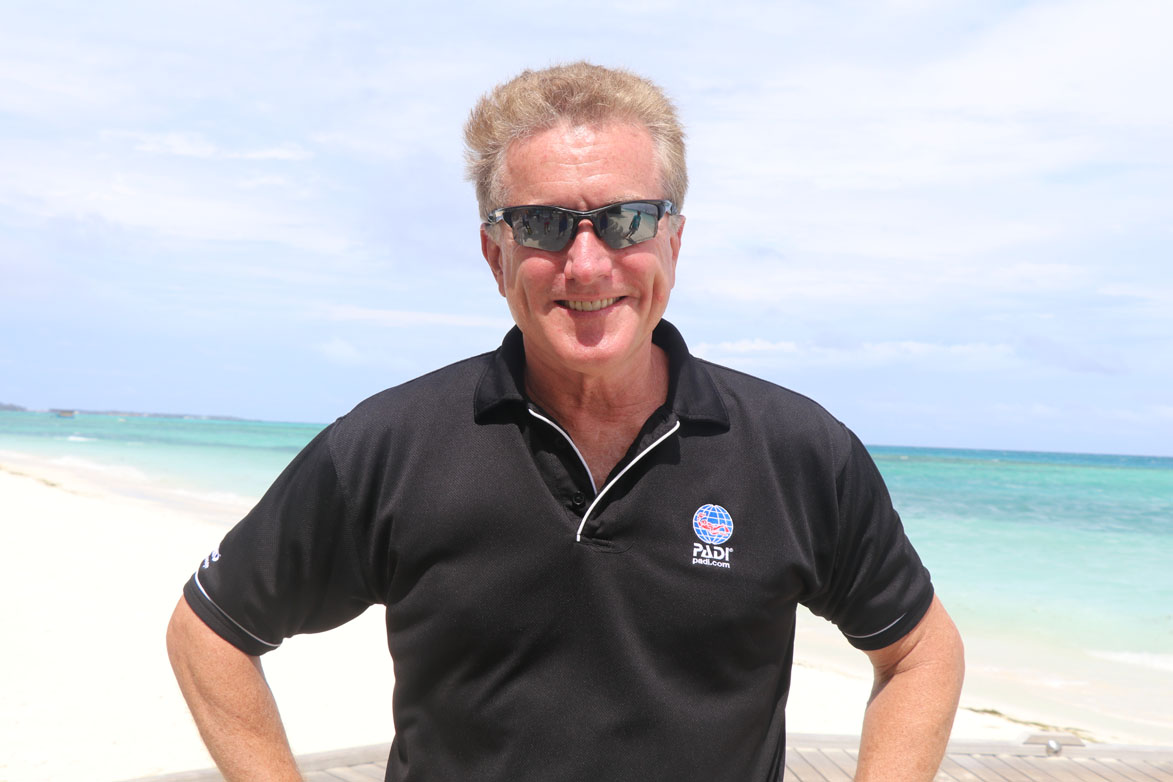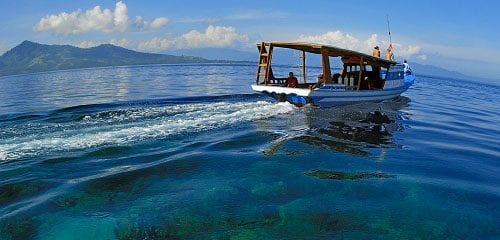PADI is the world’s largest scuba diving training agency, and its CEO and President, Dr Drew Richardson is determined that this huge network of divers can be mobilised as force for good, to care for our marine environment.
He shared his vision for an army of ocean ambassadors recently at LUX* South Ari Atoll Underwater Festival in the Maldives, during AWARE Week. I was lucky enough to share a few dives (and a few beers) with Drew at the event.
What inspired you to get involved with the Underwater Festival?
It aligned nicely with International AWARE Week, being themed to support ocean conservation and diver engagement in ocean health issues. There is so much to continue to do in terms of ocean conservation and education in the dive industry. Unquestionably, there are serious and formidable issues threatening the world’s oceans. That said, I’m a firm believer in engagement, problem identification and mitigation. My life philosophy is to remain optimistic and focused on a “future hope”. In my mind, there is no other option. Hope is the anchor to the soul. The danger is that we lose hope, or we feel like there’s nothing to be done. The Festival was an event aligned with this thinking.
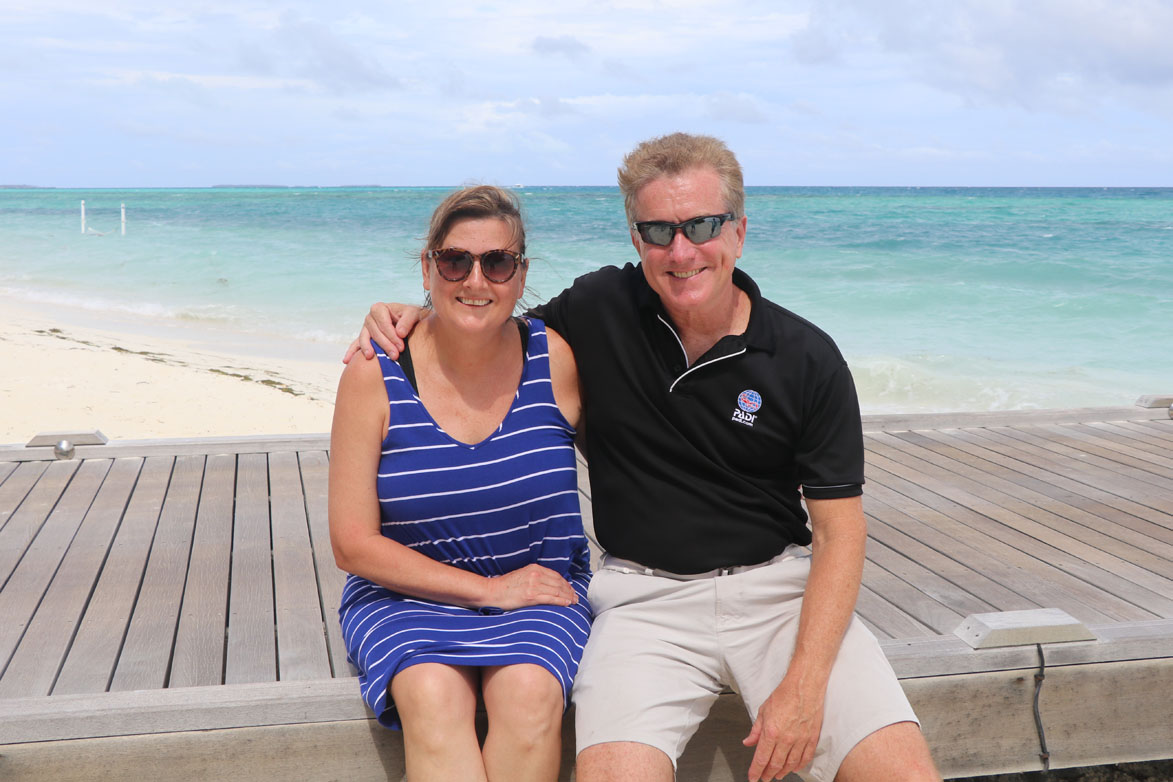
In 2017, PADI announced a corporate philosophy that embraces four ‘pillars of change’. Is this mission statement something you are personally spearheading?
Yes, the idea of paying if forward and making a meaningful difference in my life is at the forefront of what drives my guiding the PADI organization forward as a Global Force for Good. As we’ve grown, our purpose has expanded to include a stronger responsibility and commitment to take care of the environment. As the largest certifying agency in the world, PADI and its network of divers, teaching professionals and dive shops can mobilise as a force for good that can impact the health of the underwater world. This commitment to ocean health has become an integral part of the PADI corporate ethos.
To be the best in the world, we all must be the best for the world by protecting the ocean planet we love.
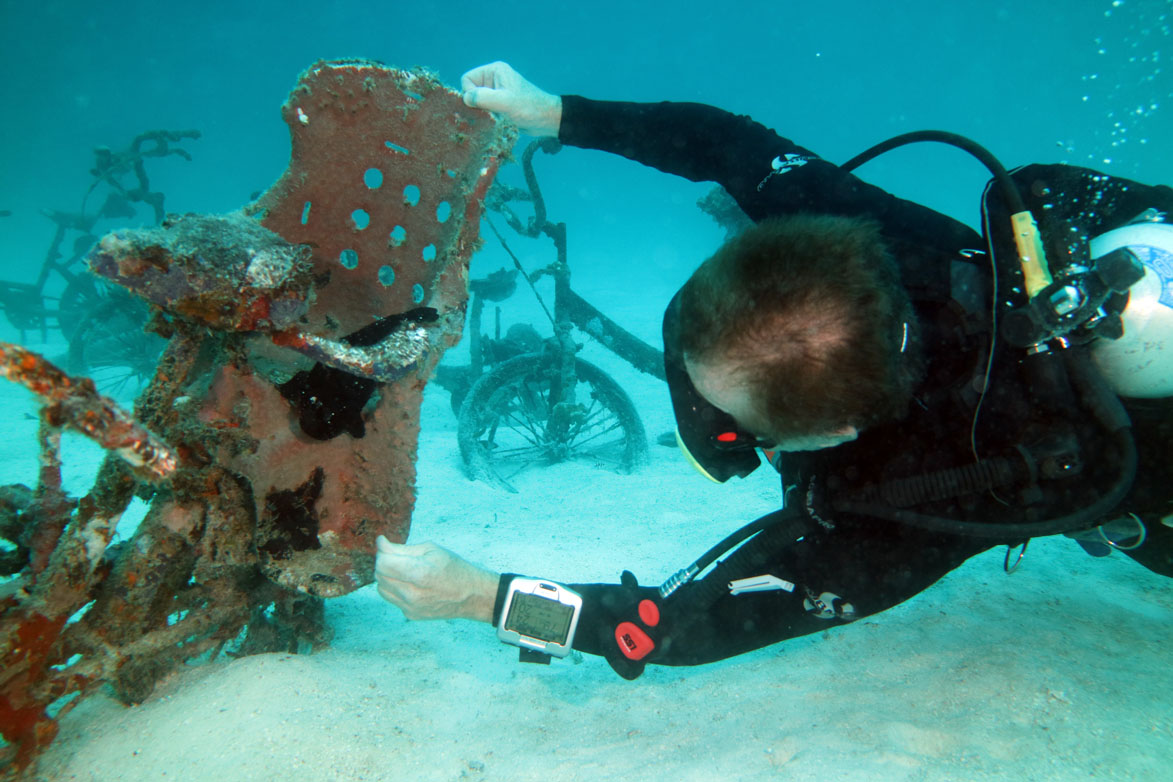
What brought about the shift from a focus on teaching people to dive responsibly and safely, to teaching awareness of ocean conservation issues?
PADI’s long-standing commitment to ocean conservation began over 25 years ago with formation of the Project AWARE Foundation which I was personally involved in and am currently the Chairman of the Board for the Foundation. In 2017, the PADI Pillars of Change was introduced to drive awareness of issues affecting our ocean communities, and to mobilise PADI Professionals and divers to act together as a catalyst for change. PADI’s environmental commitment starts at home and expands to divers and members in 183 countries and territories around the globe. Over the coming years, we will amplify our Pillars of Change ‘force for good’ ethos around the world. Our mission to ‘be best in and for the world’ will be top of mind with consumers and the PADI name synonymous with ocean conservation. The PADI brand promise includes a commitment to protect our underwater world – by enabling everyone on this planet with the ability to become a citizen scientist, we are part of the solution for a clean, healthy ocean.
Was there a catalyst for you personally, that shifted your focus to marine conservation?
It started early in my life and has continued throughout my academic and diving career in the aquatic space. At the 50th anniversary of the PADI organisation I thought deeply about my role as President and CEO of the world’s largest diving organisation and what our mission should be for the next for the next 50 years. We have a large international database of active and concerned divers who have an emotional connection to the ocean, the population of the planet has swollen and the pressure and problems are now amplified.
If divers don’t “speak for the seas” then who will?
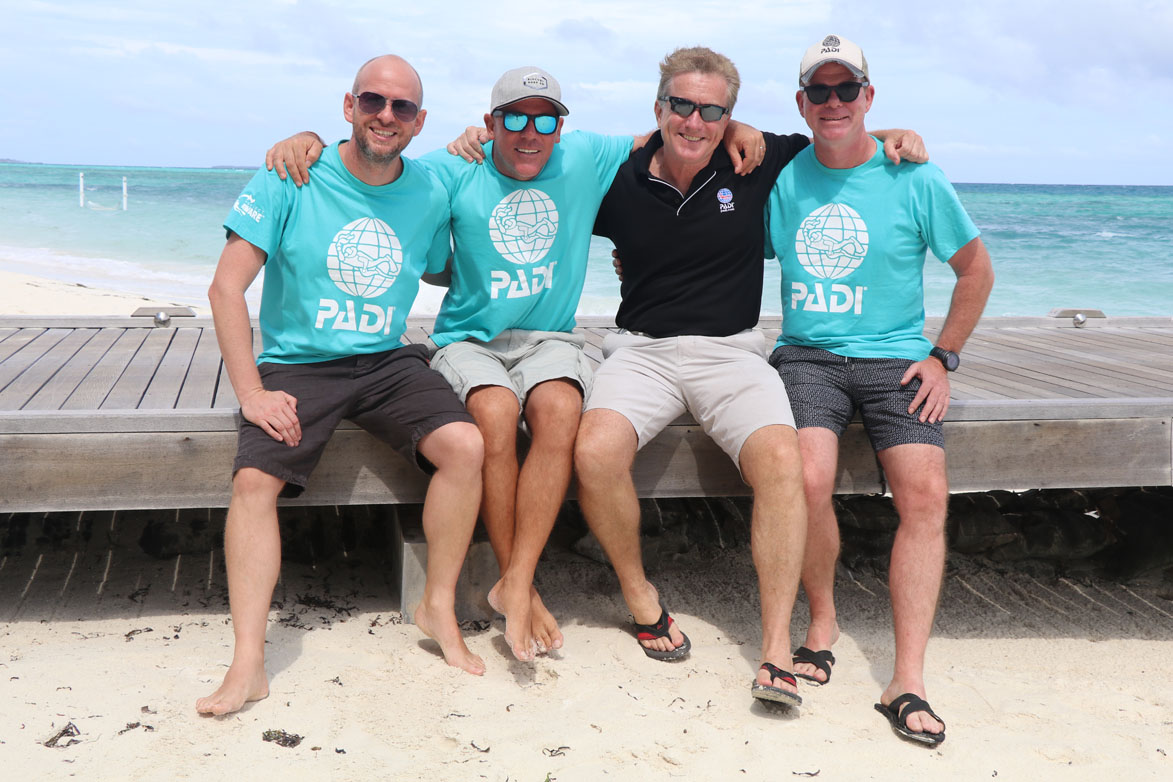
The Underwater Festival highlighted 2 marine conservation issues for me:
* The importance of marine parks – the fish stocks on our first dive, in a no-take zone, were incredible. What is PADI doing (or what can PADI do) to educate people about the importance of marine sanctuaries? (We’re really struggling with this in Australia.)
* Responsible management of marine life encounters. While it’s wonderful that the Maldives protects its whale shark population, it was disappointing to see such high numbers of snorkelers in the water with them. How can PADI help educate/influence government departments to better manage this?
Education is key: robust and measurable diver-centric citizen science programs, developed in concert with our primary partner in conservation, Project AWARE are in play. We’re contributing in part by managing the largest underwater citizen science database on the planet, that enables divers to report data that in turn can be aggregated and shared at the policy level for a clean and healthy ocean is a part of it.
Continued partnerships with NGO strategic partnerships like Mission Blue, MPA’s and GGI that amplify our message and leverage PADI’s communication and strength as a leader in ocean conservation both within and outside of diving. We are working to create a sustainable dive industry by pioneering a global environmental assessment program for dive stores and resorts, and evaluating a carbon-offset program that can be leveraged by divers and industry stakeholders to reduce their environmental impact.
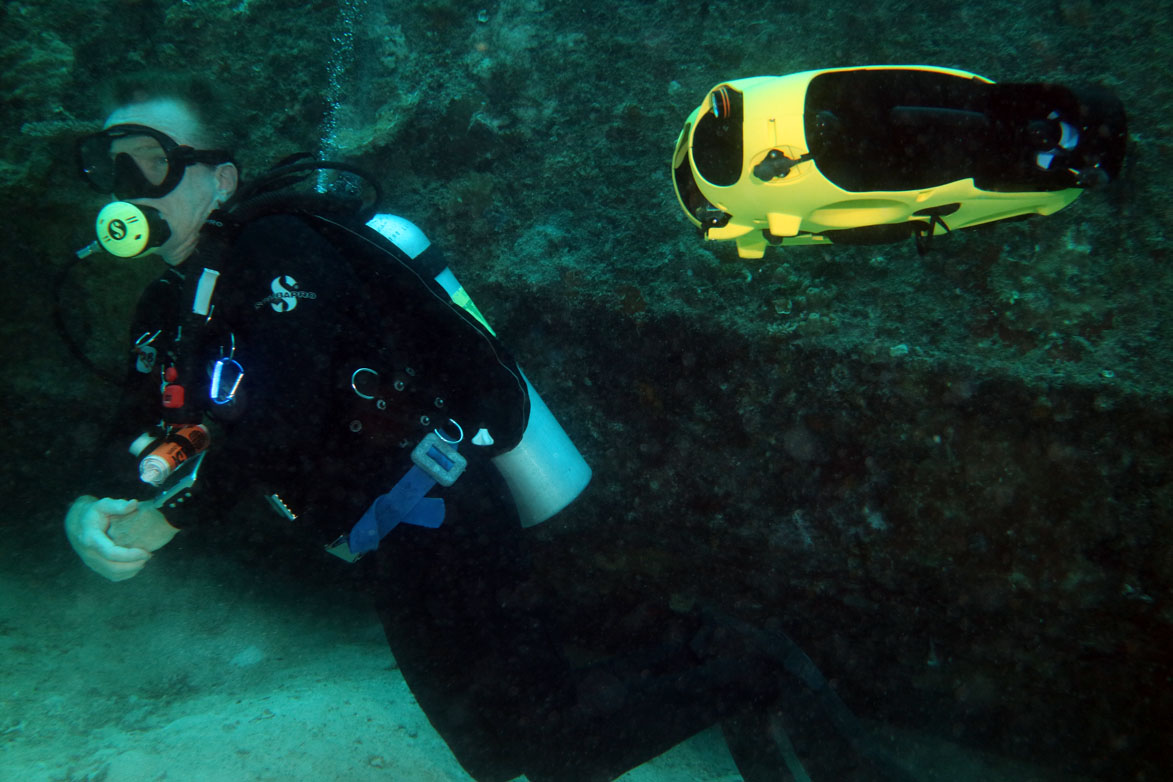
I encourage people to start with the “man in the mirror”, stay informed and do what you can to make the world a better place and become a more powerful catalyst for change. Start conversations. We already are seeing this in thousands of individuals on a local level and we are helping to get their messages out. All of us who care about these issues can amplify engagement efforts to support life below the waters of this world and support initiatives which promote the sustainable use of oceans, seas and marine resources. We encourage divers to align with like-minded businesses and organisations.
The diving community will become powerful change agents who share a like-minded love, mission and passion to be a force for good, to tackle and mitigate the problems which threaten our ocean planet.
And finally, a personal question… can you remember the moment that converted you into a scuba diver for life?
Yes, my first breath off of a double hose regulator – in a dingy old pool, in the basement of a grey and faceless apartment building in Chicago, Illinois in 1971 did it. It was so sweet, so liberating. The entire immersion was life transforming… breathing air underwater! I was hooked instantly and still am.
